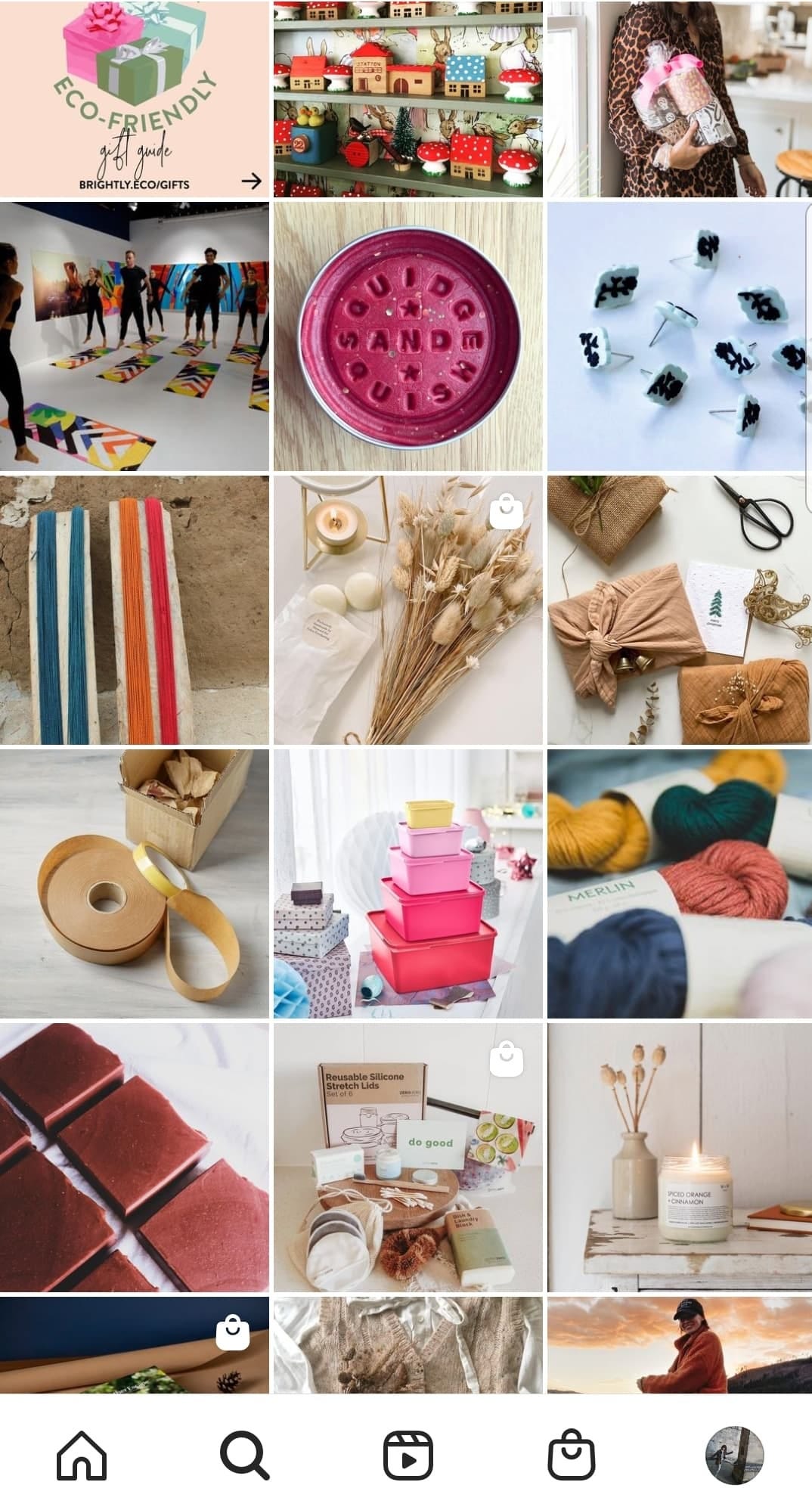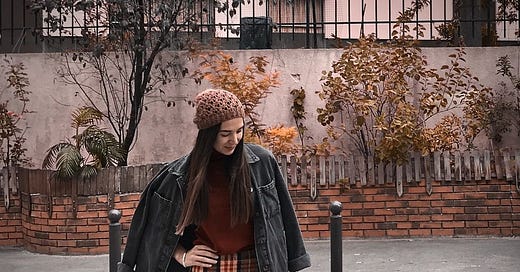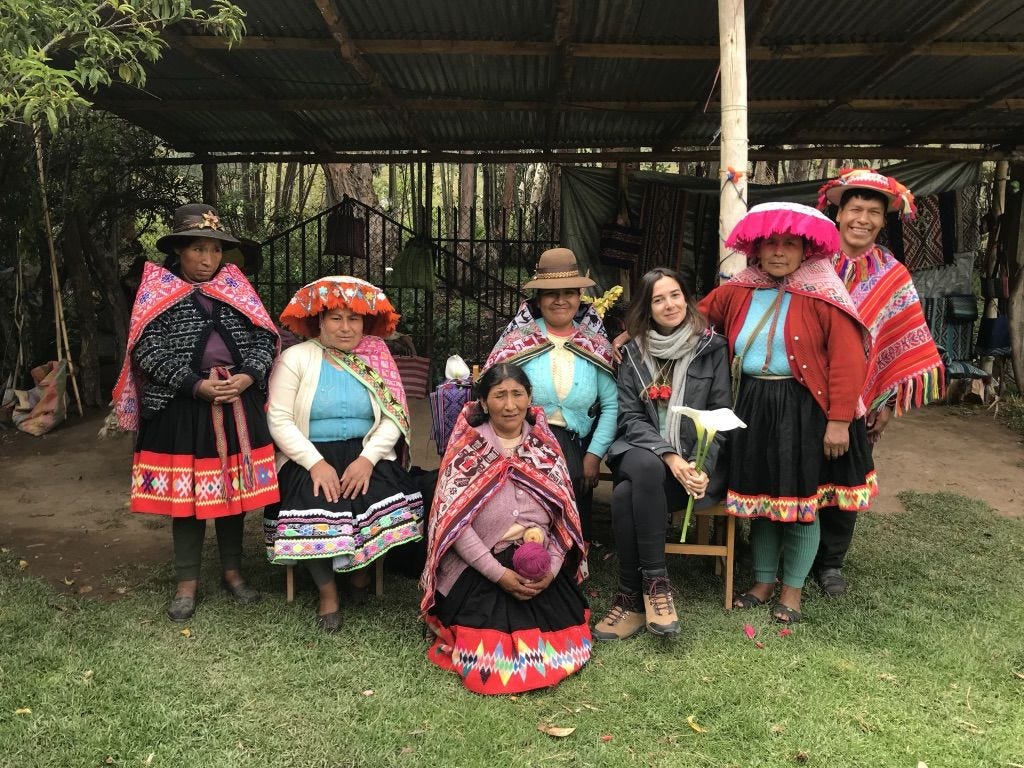What even is a 'sustainable Christmas' anyway? The Green Fix, but festive.
What do we actually mean by 'ethical gifts'? News, free resources and a chat with the founder of Meune.
Who else is being bombarded with articles called ‘10 tips for an eco-friendly Christmas?’ lately.

Call it a 2020 thing but somehow I haven’t been seized by the festive spirit or crafting skills to make a handmade wreath or my ‘sustainable gift ideas’ don’t include one single artisanal Fairtrade candle holder.
Overconsumption, this mentality of must-have and its close cousin, must-dos for a ‘proper Christmas’ is as present in many sustainable campaigns as it is in mainstream marketing.
Some, the minimalists and zero-wasters of the world, understandably just turn their back on consumerism altogether. After all, we can’t buy our way to sustainability and presenting woven baskets and ethically-made tea caddies as a solution to crippling overproduction is another part of the same economic system that relies on profit and demand to function.
Unfortunately, buying nothing is not a fix-all. If anyone has found a casual fun way to tell your family ‘let’s not buy anything because of catastrophic climate change,’ let me know. Gift-giving and celebration is deeply embedded in cultures around the world, and it’s a disservice to claim we buy things just because businesses told us to.

Of course it’s more sustainable not to buy things. It’s also more sustainable to spend Christmas Day sitting quietly in a dark room doing nothing and going nowhere.
But that won’t happen (err I hope). The point is - this Christmas, being ethical and sustainable is not just about what has the lowest emissions, but what is realistic and won’t leave you ostracised from family and friends.
So this newsletter edition I’ve invited small business owner Nahir to talk about some of those choices that aren’t so obvious when it comes to sustainable Christmas.
I’m sure if I asked a zero-waste activist, or economist, or big business CEO, the answers would all be different. This is the point: most of sustainability isn’t black-or-white, it’s a kind of murky grey zone that leaves people arguing on Twitter. On that note, if you have any thoughts on the topic, feel free to leave a comment at the end.
The Green Fix is collaborative: I write about what you want to hear about. This relies on people sending in their questions and suggestions. Shape the newsletter by taking part in the Instagram polls and filling in this feedback survey.
***
ME trying to find an original way to ask for your help to share The Green Fix because I need it: I run The Green Fix for free, in my own time, alongside a full-time job *world’s tiniest violin starts playing*. This means I don’t always (read: never) have the time to promote it as widely as I’d like to. If you like this newsletter, please help me by sharing it using the button here:
What’s Going On?
US President-Elect Biden references the strong hurricanes devastating regions of Central America as a reason to prioritise climate action.
Useful: What do hurricanes have to do with the climate crisis?Also in the US, Biden selects John Kerry to be the first ‘special envoy on climate change.’ Kerry was one of the key players of the Paris Agreement.
Related: What is the Paris Agreement?The UK government announces its 10-point plan for a ‘Green Industrial Revolution,’ which aims to create 250,000 new jobs.
Useful: How does a green transition create more jobs?Fossil fuel company Shell is being taken to court this month by environmental NGOs in the Netherlands to try and force it to cut its carbon emissions.
Useful: Why is Shell specifically being taken to court?
Focus On… Ethical Christmas
Nahir, founder of the Meune project, talks about what a sustainable and ethical Christmas actually means.
1. Please introduce yourself and what you do!
My name is Nahir, and I come from a very little town in Argentina called Carhué, which means “green place” in Mapuche. I’m a former international relations specialist and the founder of Meüne project.
I left my country 5 years ago to live and work in Paris, and I never found a job that fulfilled my purpose. I wanted to work in something I felt had meaning. What came to mind first were the artisans in danger of disappearance and living in poverty, like the indigenous communities of weavers across Latin American Andes.
Living in Paris kept me close to the clothing industry, living evidence that fast fashion has taken over any other way of producing and consuming clothes. I’ve never been much of a fashion person, but I love art and craftsmanship, and somewhere in between I realized we can do art through fashion.
This is why I started Meüne, a project that depends on the willingness to be and do better for people and our planet. I created it specifically to participate in the fashion transformation, not only by helping the indigenous communities in the Andes by selling clothing partially handcrafted by them, but also getting involved in activism, starting fast fashion awareness campaigns and social projects in Latin America.
[Read more about sustainable fashion in the Green Fix edition on slow fashion here.]
2. With Christmas coming up, how can we find & support ethical businesses?
There are so many different ways to support them, including many free ones. Yes, FREE:
Send businesses a lovely message of support, tell them how great they are! (they will appreciate this more than you can ever imagine! – speaking from experience).
Write reviews of their products and services.
Follow them on social media, engage and share their posts, sign up to their newsletter.
Tell your friends and family about them.
If they have a gift card system, buy a gift card and use it later (in the meantime, this will help them survive COVID-19 and lockdown period).
Directly prioritise them over non-ethical business to do your regular shopping, always according to your needs and budget. You can find them on social media, on dedicated websites for ethical brands, and there are also many apps to help you, including: Good On You, FairFashion, Co-Go, Faer, and Futurewear.
3. It's not always clear what the most 'ethical' shopping choice is. Is shopping at an ethical brand better than supporting a local, non purpose-driven small business?
Any and every effort should be celebrated! I love supporting local and small businesses and we need to support them, particularly now!
However, I always try to find out more about their products, like where the products come from, how they were made and what’s in them, to see if there’s any possible significant negative impacts for the environment or people.
[Is your favourite brand ethical? Read our newsletter on greenwashing]
Shopping is different and personal to everyone, and so there’s no particular rule for what is best or better, other than shopping consciously and to learn about it! The more we learn, the more confidence we have in our choices and what is best for us, for the planet and for other people.
4. Help! All the ethical brands I can find are really expensive! How do I give ethical & sustainable gifts this Christmas?

There are many different affordable ethical and sustainable products we can buy as gifts. For people who are buying something for Christmas, here’s some ideas:
Go second-hand shopping.
As I mentioned earlier, you can choose gift cards according to your budget (this is a great way to let people discover your favorite ethical shops!
Accessories can be affordable, as well as ethical and sustainable beauty products.
Buy organic food from a local shop.
But for those looking to alternatives to buying new gifts on Christmas, there are other options too! For example:
Give away something that belongs to you (I personally love this idea and I’ll do it myself for the first time this year!).
Arrange a swap with someone you know would love the idea (it can be books, clothes, dedicated written letters/poems, makeup, beauty products, or anything else!)
Make something. If you know how to sew, go for it! You can upcycle some old piece of clothing, make a bouquet with your garden flowers, or you can even cook that delicious meal everyone loves.
5. Christmas is a huge time for overconsumption & overproduction. Why should I buy from an ethical brand at all? Isn't it better to stop shopping altogether?
When it comes to Christmas, the act of giving something to our loved ones is very personal and can widely vary depending on the person and their culture. So, I wouldn’t say it’s appropriate to say what is better or worse in this case. What I like is to give useful information, ideas and advice, to let everyone make their own choice.
One thing is clear: we need people buying consciously throughout the year, so when it’s time for events like Christmas, we don’t have to worry about how we over-consumed during the past months. If I know I’ll be buying more than usual in events like this, I’ll try to avoid buying stuff for myself and use the money to give gifts to others.
Everyone is different. We should find what best suits us, and keep in mind that it is important we buy consciously, avoiding unnecessary shopping. This is the best for ourselves, others and the planet.
Learn more about Meune on their website, or follow them on Instagram @meune.official.
So Now What Do I Do?
LEARN MORE
Read about the problem with the idea of ‘ethical consumerism.’
Learn about some eco-friendly options for wrapping paper, Christmas dinner, decorations, Christmas crackers, and Christmas trees.
Read how big businesses use psychological tricks to get us to buy more stuff.
TRY SOMETHING NEW
Donate to charity for a Christmas gift. The Giving Multiplier tool lets you find charities that are both effective and meaningful to you. You can also plant a tree through Treedom for someone.
Download these browser extensions that help you make ethical and sustainable shopping choices.
CHANGE THE SYSTEM
Use the Ellen McArthur Foundation toolkits to learn what a circular economy is, and how you can push businesses, cities and governments to apply it.
Sign up to Traidcraft’s Injustice Advent Calendar, which will email 24 simple ways to stand up for justice.
This year many people may be isolated or struggling at Christmas. Here are 7 ways you can help others this Christmas.
IS THAT IT?
No. As much as I wish my writing skills were so good that I can summarise what you can do in a few bullet points, there’s way more than I can include in one email.
If you think a crucial resource is missing or you’re doing something else to have an ethical Christmas, leave a comment below!
If you have a topic you want the Green Fix to cover, fill out this feedback form & tell us your idea!
Stay in the loop
The topic for the next Green Fix is decided through a weekly poll on my Instagram @coffee_and_casstaways. I also use Instagram to share additional resources and tips that don’t make it onto this newsletter.
Know someone interested in environmental issues? Forward this email to them - we want to reach people who care about doing more for the planet, with your help!






